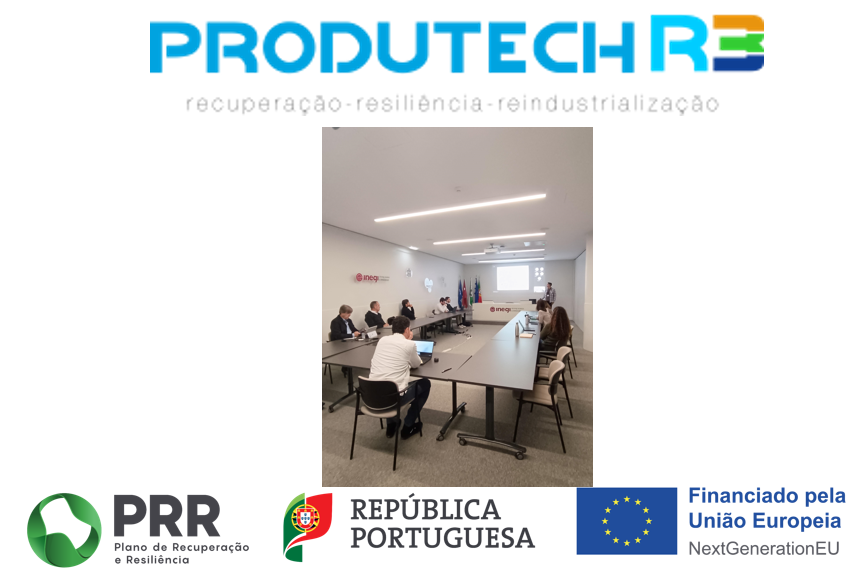WORKSHOP on LEAN DFX and 04.D SW presented within the scope of Produtech R3 WP2

On 20 November, the third workshop of the PRODUTECH R3 WP2 - Design2Transform project was held at INEGI. The focus of the workshop was on the integration of the Lean DfX and 04.D Modules into the SISTRADE PLM Software. The event was attended by software demonstrators, including representatives from CEI and JPM, as well as representatives from academic institutions, such as INEGI and INESC TEC. The program combined theoretical and practical presentations on the tool.
On 20 November, as part of the PRODUTECH R3 WP2 - Design2Transform project, the Workshop on the Lean DfX and 04.D Modules integrated into SISTRADE PLM Software was held at INEGI's facilities, the third time the tool has been presented. This training, given by INEGI and SISTRADE, was attended by the software demonstrators, CEI and JPM, and R&D and Innovation organizations INEGI and INESC TEC, making up a total of 12 participants, both in person and online. The training program consisted of an analysis of the theoretical framework of the LeanDfX and 04.D tools, to summarize the information entered by the SISTRADE PLM software, followed by a presentation of the LeanDfX and 04.D modules integrated into the PLM software. The training allowed each company to start applying the new software modules in their own practical cases, resulting in substantial progress in the project and a fruitful exchange of ideas between the various organizations present. The face-to-face activity proved to be of great value in the context of this project, as it allowed the demonstrators to carry out a global analysis of the tool's progress.
This analysis led to the resolution of several issues with the software developer, particularly concerning the previous and current modules. The discussion held during the workshop enabled SISTRADE to identify areas for improvement, intending to ensure that the tool is as effective and easy to use as possible for the demonstrators who will be using it in their respective companies. After completing the training, the next stage is the continued use of the PLM software to improve the quality of their products. Demonstrators are asked to provide feedback on the modules that have been presented so far, to ensure that the tool is progressively aligned with the demonstrators' genuine requirements and becomes an essential component in the sustained increase in the quality of their machines.
The PRODUTECH R3 project - Mobilizing Agenda for the Production Technologies Sector for Reindustrialization, is funded by the European Union under the NextGeneration EU program through the Recovery and Resilience Facility (RRF) and the Recovery and Resilience Plan (RRP - www.recuperarportugal.gov.pt).
#ConstruiroFuturo #FundosUE #PRR #NextGenerationEU #NextGenEU #construirofuturo #resiliencia #transicaodigital #transicaoclimatica #somosprr #PRODUTECHR3